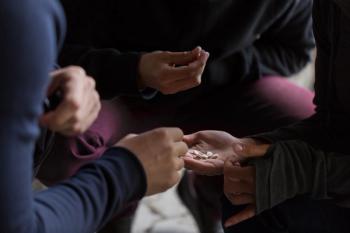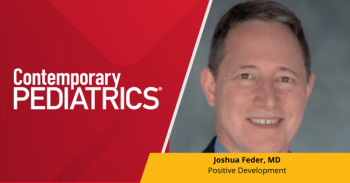
Helping pediatric families through the holidays
For this first holiday season of live events since COVID-19 hit, tips on how to address a broad spectrum of mental health issues, including those children who have lost a loved one to the pandemic.
Although the holidays may seem more normal this year than in 2020, the psychological stressors of the pandemic are still in play. In fact, for many families, the pressure to get back to normal may itself be a stressor. Many parents, for example, wrestle with whether to share a meal with unvaccinated family members or to expose vulnerable older adults and other friends and family members to unvaccinated young children.
Furthermore, holidays can be difficult for children and teens with depression, anxiety, and other disorders, even in the best of times. Thanks to many issues related to the pandemic, this has not been the best of times. The American Academy of Pediatrics, American Academy of Child and Adolescent Psychiatry, and Children’s Hospital Association recently declared a national emergency in child and adolescent mental health due to the skyrocketing incidence of mental illness, particularly among teens, during the pandemic.1
Also more pronounced during this holiday season are experiences of loss and grief. A recent study estimated that 140,000 children have lost a parent or grandparent caregiver due to COVID-19, with losses concentrated among children of color.2
All of these factors may make the upcoming holidays difficult for young patients and their families. That makes this a good time for pediatricians and other primary care providers (PCPs) to redouble their efforts on behalf of pediatric patients.
A basic step is simply to use the holidays as a reason to check in with patients and caregivers: “So, the holiday season is coming up. What are you feeling about that?” More probing questions can follow, depending on the patient’s response.
Since family support is a strong predictor of child resilience,3 checking in with caregivers is important. PCPs can ask open-ended questions and listen to parents’ concerns about the holidays and their children. Rather than prescribing solutions, help caregivers build on their strengths and find their own solutions. For example, if a caregiver says, “There’s just so much to do!” the PCP can respond, “Are all of the things you have to do equally important? Are there any you can let go and your family will still enjoy the holiday?”
It is also important to emphasize the importance of structure when talking with older children and teens as well as parents of younger children. One reason for December meltdowns or increases in depressive symptoms may simply be lack of sleep and changes in routine. Remind patients and families that keeping to normal bedtimes and mealtimes—standard advice for reducing stress during any holiday season—is more important this year than ever.
Patients and families who are mourning may need special support. Monitor patients for signs that grief is prolonged and perhaps sliding into depression. UCLA offers screening tools for child and adolescent PTSD and prolonged grief at
For both patients and caregivers who are grieving, consider suggesting self-help steps, such as joining a support group. The
In addition, some patients may suffer from seasonal affective disorder (SAD). Although SAD commonly begins in young adulthood, it can affect adolescents. Diagnosis of SAD requires at least two instances of depression that begins in fall or winter and remits in spring. Light therapy is the gold-standard treatment, often combined with cognitive behavioral therapy and medication.4
Finally, clinicians should, as always, carefully monitor their own emotional health. The stressors that affect patients’ families during the holidays may also affect medical professionals and their families. Self-care routines, including opportunities to share emotional burdens with close friends or trusted colleagues, take on greater importance in proportion to the distress manifested by one’s patients.
About the author:
Lisa Hunter Romanelli, PhD, is CEO of The REACH Institute, a nonprofit organization that trains primary care providers, therapists, and health care institutions in evidence-based therapies for child and adult mental health issues. She is also a licensed psychologist with expertise in cognitive behavioral therapy in clinical practice in Princeton, NJ.
References
1. American Academy of Pediatrics. AAP-AACAP-CHA declaration of a national emergency in child and adolescent mental health. Accessed November 24, 2021. https://www.aap.org/en/advocacy/child-and-adolescent-healthy-mental-development/aap-aacap-cha-declaration-of-a-national-emergency-in-child-and-adolescent-mental-health/
2. Hillis SD, Blenkinsop A, Villaveces A, et al. COVID-19-associated orphanhood and caregiver death in the United States. Pediatrics. Published online October 7, 2021. doi:10.1542/peds.2021-053760
3. Weir K. Maximizing children's resilience. APA Monitor. 2017;48(8):40. Accessed Novemer 24, 2021. https://www.apa.org/monitor/2017/09/cover-resilience
4. Kurlansik SL, Ibay, AD. Seasonal affective disorder. Am Fam Physician. 2012 Dec 1;86(11):1037-1041.
Newsletter
Access practical, evidence-based guidance to support better care for our youngest patients. Join our email list for the latest clinical updates.






